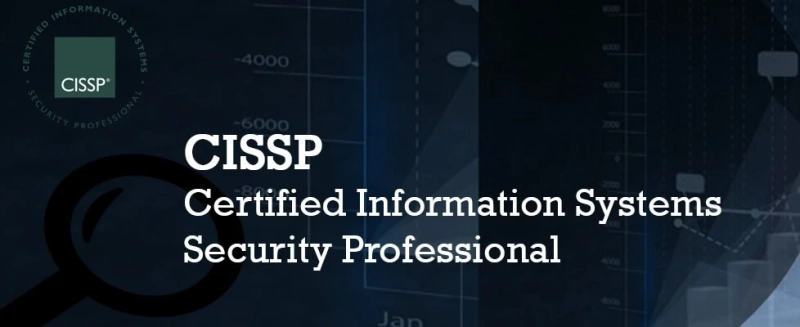In the rapidly growing field of cybersecurity, professionals are increasingly looking for certification to validate their knowledge and skills. One of the most popular certifications in the industry is the Certified Information Systems Security Professional (CISSP). However, CISSP is not the only cybersecurity certification available in the market. In this blog, we will explore CISSP and compare it to other cybersecurity certifications to help you determine which one is the right fit for you.
Overview of CISSP:
CISSP is a certification program designed for experienced cybersecurity professionals. It is intended to validate an individual's knowledge and skills in a variety of security domains, such as access control, cryptography, and risk management. CISSP is a vendor-neutral certification, meaning it is not tied to any specific technology or product.
To earn the CISSP certification, candidates must have at least five years of relevant work experience in two or more of the eight domains covered by the exam. Alternatively, candidates with four years of experience and a relevant degree or credential can also apply. The CISSP exam consists of 250 multiple-choice questions that cover topics related to cybersecurity.
Overview of Other Cybersecurity Certifications:
There are several other cybersecurity certifications available, each with its own focus and requirements. Here are some of the most popular ones:
CompTIA Security+: This is an entry-level certification that covers basic cybersecurity concepts and techniques. It is designed for individuals who are new to the field of cybersecurity or who need to demonstrate their knowledge of security fundamentals. The exam covers topics such as threat management, cryptography, and network security.
Certified Ethical Hacker (CEH): This certification is designed for individuals who want to demonstrate their knowledge of hacking techniques and methodologies. It covers topics such as foot printing and reconnaissance, system hacking, and social engineering. The CEH certification is intended for individuals who work in security-related positions or who want to pursue a career in ethical hacking.
Certified Information Security Manager (CISM): This certification is designed for individuals who are responsible for managing and implementing information security programs within an organization. The exam covers topics such as information risk management, incident management, and security program development. CISM is intended for individuals who are already working in information security management or who are looking to advance their careers in this field.
CISSP vs. Other Cybersecurity Certifications:
Now that we have an overview of the CISSP and some of the other cybersecurity certifications, let's compare them to help you determine which one is right for you.
Level of Experience: CISSP is designed for experienced cybersecurity professionals, while other certifications such as CompTIA Security+ and CEH are intended for individuals who are just starting in the field. If you have less than five years of relevant work experience, it may be more appropriate to pursue a different certification.
Scope of Knowledge: CISSP Certification covers a broad range of cybersecurity domains, while other certifications may focus on specific areas such as ethical hacking or information security management. If you are interested in a specific area of cybersecurity, you may want to consider a certification that is more focused on that area.
Career Goals: Your career goals may also influence which certification you should pursue. If you are interested in a management role within an organization, a certification like CISM may be more appropriate. On the other hand, if you want to specialize in ethical hacking, the CEH certification may be the right choice.
Vendor-Neutral vs. Vendor-Specific: CISSP is a vendor-neutral certification, meaning it is not tied to any specific technology or product. Other certifications, such as those offered by specific vendors like Cisco or Microsoft, may be more focused on their products and technologies.
Conclusion:
CISSP is a well-respected and comprehensive certification that validates the knowledge and skills of experienced cybersecurity professionals across multiple domains. While it may not be the right choice for everyone, it is an excellent choice for those looking to demonstrate their expertise in a wide range of security areas. Other certifications, such as CompTIA Security+, CEH, and CISM, are more focused and may be better suited to individuals with different levels of experience and career goals. Ultimately, the decision on which certification to pursue should be based on a careful consideration of one's career goals, level of experience, and personal interests.


